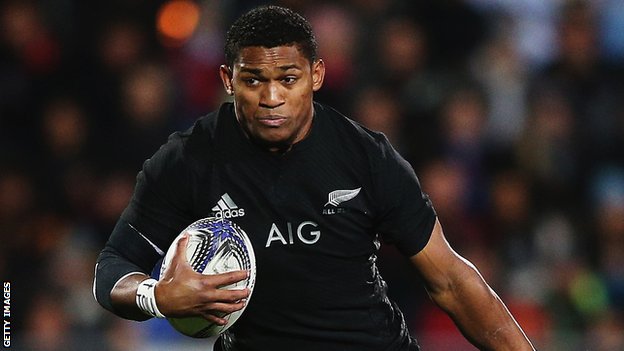A former All Blacks doctor is sceptical of the so-called Fijian “miracle cure” used to treat star winger Waisake Naholo’s broken leg in time for the 2015 Rugby World Cup.
The Fijian flyer was last night a surprise inclusion in the All Blacks’ 31-man squad for the tournament that starts on September 19.
Naholo was diagnosed with a cracked fibula after a Rugby Championship match in Christchurch against Argentina last month.
All Blacks medical staff said at the time it was a season-ending injury with a three-month recovery period.
But 24-year-old Naholo immediately flew back to the village of Nadroumai in his native Fiji on the advice of his uncle Isei Naiova who said he could cure him in time for the world cup.
Locally grown kawakawarau leaves were wrapped around his legs.
After four days, the leaves were removed.
“When I first touched his leg he was in pain but after four days he hardly felt any p ain,” Mr Naiova told Fiji Times.
ain,” Mr Naiova told Fiji Times.
“This healing has been performed by our forefathers and has been passed down from generation to generation. It is a gift from God.
“The kawakawarau leaf grows here in the village, but only some people like myself and my family members can heal injured people by this leaf.
“I have healed many Fijian rugby players and I have seen players recover well and play rugby like nothing happened to them.”
Former All Blacks doctor John ‘Doc’ Mayhew, however, said his recovery was “not a surprise”.
He was stunned by the All Blacks medical team’s original “ridiculous over-estimation” of Naholo’s recovery time. Recovery for a cracked fibula is normally 6-8 weeks, Dr Mayhew said.
“He is just coming back at the appropriate time for the injury he has had,” said Dr Mayhew, who is team doctor for the Vodafone Warriors.
“It appears he has made a dramatic recovery, but to me it just fits in with normal medical timeframes.
“They expect him to be fit for the second or third game of the world cup which is four or five weeks away, so it’s a long time. Certainly I would expect him to be fit.”
Dr Mayhew said he was not aware of any herbal remedies that help fractures to heal.
Sports medicine is “littered miracle cures or miracle supplements”, he said. While he doesn’t believe they necessarily work, if they are not adversely affecting players’ recoveries, he is not against their use.
Placebo treatments often help patients recover though, Dr Mayhew said.
“Often some of these Polynesian players have belief in traditional remedies, which is fine, but certainly I hope we don’t see an influx of broken legs flying to Fiji.”

